Check out the Manitoba region newsletter for May 2024 here.
Get the newsletter in your inbox! Subscribe and click Manitoba CED Bulletins
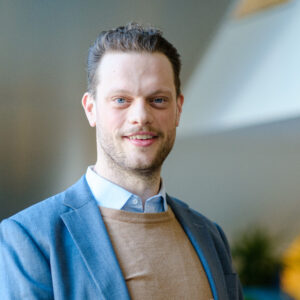
CCEDNet’s Theory of Change states that “We believe that how we organize our relationships in a place matters, and that community economies can be sites of transformation.”
So, if our goal is to harness the transformative power of community economies, how should we organize our relationships in a place? What works? What doesn’t? And how do we channel those relationships into advocacy that can tangibly improve people’s lives?
Michael Barkman has devoted much of his career to answering these questions in both theory and practice. As CCEDNet’s Manitoba Network Manager, one of Michael’s primary responsibilities is to lead public policy advocacy through coalitions and direct government relations, and supporting CCEDNet’s Manitoba Learns program. He also has years of experience as an organizer for student rights, civil liberties, and anti-poverty movements.
At CCEDNet MB’s recent event, “Tiny Talks: Advocacy Training in Small Bites,” Michael delivered a session entitled How to Advocate and Organize. We asked him to share some insights from his session, as well as from his years of experience doing place-based organizing for community economic development (CED).
This interview has been edited for length and clarity.
To get to our vision requires us to demand and seek systemic change and policy change. We can do a lot of transformative work at a community level but we also need governments to play their part in helping to get closer to our vision. Beyond that, if our work is only focused on addressing symptoms and putting band-aids on the challenges of the current global economy, I don’t think we’ll ever fully realize the change we want to see.
So that requires that we organize – not only to build amazing and innovative community economic development solutions, but also to organize together so that governments act differently.
The hope of the session was to convey to audience members that they could and should be doing community organizing and advocacy. They already have the skills and talents to do it. You don’t need to be an expert in public policy. By learning and working together we can add to our skills to create change.
And the other message that I think was really trying to get across to people was the importance of coalition-based work and collaborative work. 500 voices saying 500 different things can be easy for governments to ignore – or to divide and conquer – but 500 voices saying one consistent thing becomes a lot harder to ignore.
Of course, it doesn’t always work that easily. Even if you have thousands and thousands and thousands of people pushing for the same thing, governments can still find ways to ignore that. But still the principle holds true: by working collaboratively in coalition and pushing for similar goals, we can go a lot further than we otherwise would be able to.
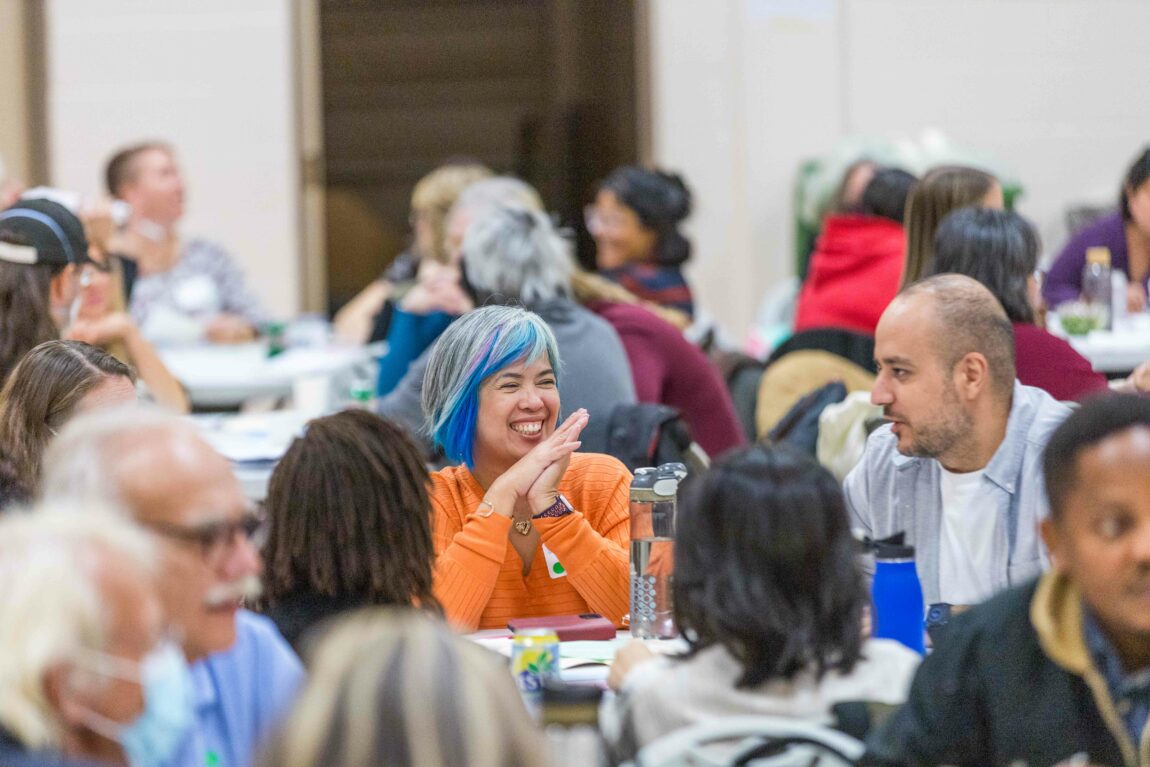
The first thing that comes to mind is wisdom from adrienne maree brown – that things move at the speed of trust. This is important because strong relationships are at the heart of good organizing work, and that comes through deep progress with each other. And I think that in my mind looks like a few things.
One is that it’s a collaborative practice of working with others. I think sometimes collaboration gets seen as a skill that you either have or don’t, which is a narrative that just isn’t true. Collaborative skills are something that you can and should strengthen, sharpen, grow, and develop.
Another principle is belief in the power and importance of good facilitation. It really matters! It can’t and won’t solve everything – for example, deep conflict may require a more formal mediation or conflict transformation process. But I think there are a lot of times when community organizing is broken down due to a lack of good facilitation. Often, people bring potentially conflicting ideas and desires for change to the table, so there are a lot of times when strong facilitation can build better relationships, develop trust, and find and establish common ground quickly.
Also, good facilitation and strengthening collaborative relationships can help ensure that more diverse voices can be included. You know, as a white man in community organizing work, I think a lot about how to create spaces where people from diverse communities feel included, welcomed, and valued. If I want to help dismantle white supremacy in these spaces, I always need to be focused on building trust and being in good relationships. And strong facilitation can ensure that processes are in place to centre the voices of people who might otherwise be marginalized.
For this to happen, it’s important for people to first feel like they’re connected to an understanding of their own role in social change work. There are different theoretical models that can be helpful here, but the key thing is just knowing that you can play a really useful part in a bigger picture – and that you don’t need to be everything or do everything. In fact, trying to do more than your own role can lead to burnouts and bad relationships.
To figure out what those roles are, it’s important for people to know what skills and talents they bring to the table. These are capacities that can be leveraged as assets, and can help create roles that people feel connected to and invested in.
Once there’s an understanding of the roles that people can play, then it’s helpful to create an advocacy strategy, a campaign plan, or a community organizing plan. The strategy should have clear ideas about who might be taking a lead on what and who’s involved in sort of which piece of work based on what they want to do and what they feel like their strengths are.
Once the strategy is set, you want to try sticking to it as best as possible. Of course things may change and some plans will have to shift, but channeling our relationships into a solid strategy can give you a longer view than just the next thing that you’re doing or the next event that’s happening. It can help you answer the question, what comes after that?
In terms of what actions to take, I’m from the school of thought that tactics follow strategy. Ask yourself, “what can we do that will allow us to achieve our goals in the fastest and most effective ways possible?” Will using the levers of government help you achieve your vision? If so, it might make sense for your coalition to organize around participation in things like committee meetings and budget consultations. But some strategies call for other tactics, like direct action. It all depends on the context, the issues, and your coalition’s vision and strategy.
Whatever your tactics may be, your approach to narrative is important. How do you communicate your message effectively? How can you tell stories that invite more people in and get them connected to work?
Finally, no matter what your tactics are, it’s important to understand the decision-making cycles that impact your ability to achieve your vision. Inform yourself of the timeframes for relevant consultations, meetings, etc. at all levels of government, and work these into your advocacy strategy. Whether you’re in the halls of power and speaking at one of these meetings, or organizing a protest outside of it, these are important opportunities to leverage and demonstrate your collective power.
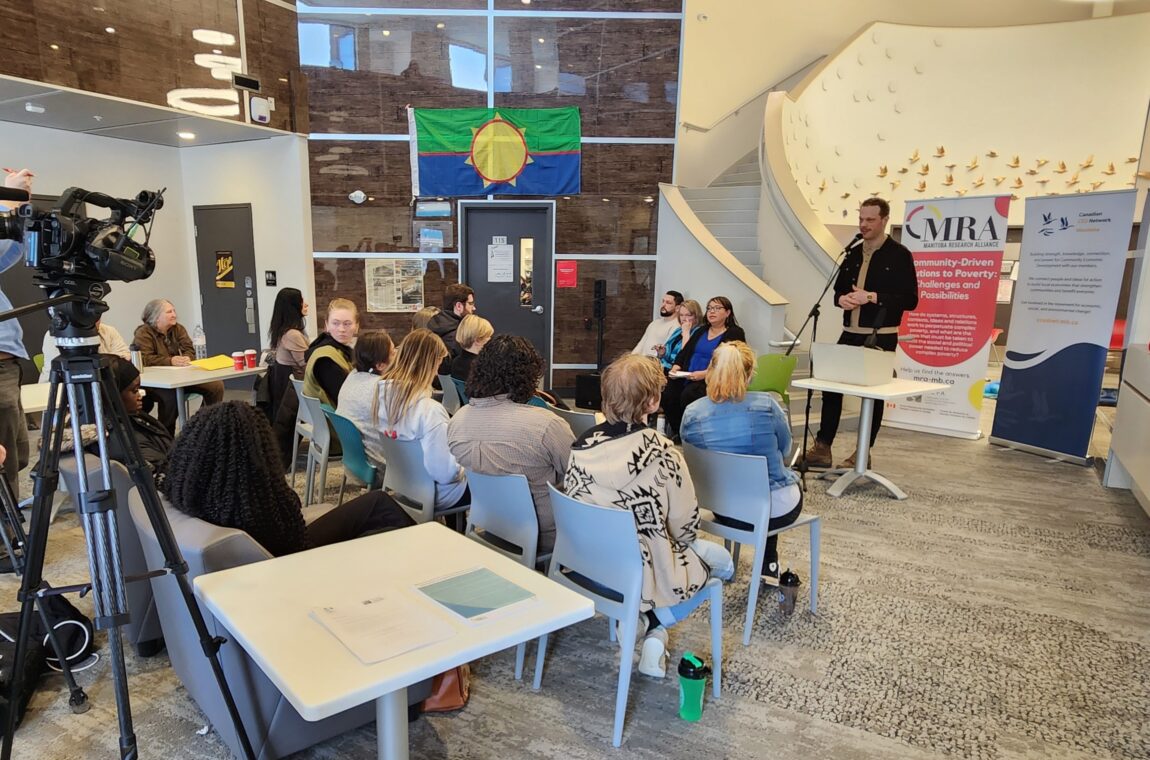
A lot of people in our network are doing really awesome place-based, local building up of community economies in ways that are really transformative. In my mind, we also need the state (in whatever sense that is) to truly build longer term transformation as well. For CED practitioners, part of why we offer training is to help them think about what they need from governments in order to create transformation – not to ignore that realm, even though it can be overwhelming. And many times, when people drawn into this work come from more of an entrepreneurial or innovator background, they’re not automatically thinking about how we can get governments involved in our vision of building local, fair economies.
If the goals are around economic justice, economic reconciliation, and economic transformation and toward building a more fair, sustainable, inclusive economy, then this vision comes with policy goals and social shifts in people’s mindsets. However, the organizing strategies and approaches required won’t necessarily be different from other campaigns for justice. I think about the climate movement, and it’s really awesome seeing the connections made between climate justice and anti-poverty work, for example. Or how we’re looking to integrate climate solutions into the foundations of community economic development work, and how the CED sector is pushing governments to support those solutions in their climate plans as well.
In other words, people who are already practicing CED shouldn’t forget or ignore the importance of making community organizing and advocacy a part of their work. And on the other side of the spectrum, we want community organizers to infuse their campaigns for justice with the transformative power of their community economies. We want to break down those silos — bringing community organizing to CED and bringing CED to community organizing.
My grandparents, who were and still are (my grandfather is 94) really strong peace activists. In the 60’s and 70’s they organized groups of teachers to go into the US to protest nuclear proliferation, and also went into the USSR on an educators’ friendship mission. They were followed by CSIS when they got home! Anyhow, I grew up in a home where social justice was important and I got to see a lot of community organizing happening on the ground. My grandma had the CBC callback number and the newspaper op-ed information laminated on her fridge — it was amazing to see this strong woman who was always using her voice for change.
I was recently talking to my grandpa and one of his old friends, and the friend said something like, “hope is not an action; it’s a commitment.” To hear this wisdom coming from these two longtime activists in their late 80s and early 90s was powerful. It’s a commitment to hope for change for something different, even if that change feels very far off. It helped me want to commit to doing my part for change for the next 60 years myself. I know my hope will waver many times but I will stay committed to envisioning change in their honour, building upon their work.
Recommendations for a more inclusive and sustainable economy were shared with the Government of Manitoba through CCEDNet Manitoba on behalf of the Network’s approximately 100 member organizations in the province before Budget 2024.
Manitoba Budget 2024 was released on April 2, 2024.
Below is a summary of CED Highlights that relate to the 5 key priorities shared in the Network budget submission. Links are included to further analysis from community coalitions and CCEDNet member organizations about certain topics.

An Inclusive Economy & Economic Reconciliation, Manitoba Jobs for Manitobans, Community Benefits for Big Projects:
- Read these summaries of tax changes and revenue from the Canadian Centre for Policy Alternatives – Manitoba here and here
- The Government announced that they are launching an ambitious economic development strategy. CCEDNet Manitoba will work to ensure that Network perspectives and members’ work building community economies will be included – including developing the social economy and CED as a key aspect of Manitoba’s economic development plan
- The plan will include expanding Manitoba’s ‘low carbon economy’ by “creating more low carbon jobs and expanding our low carbon economy through strategic investments in clean technologies, sustainable energy, and critical mineral development.” Read the Wilderness Committee’s recent blog about how a critical minerals strategy is actually a climate strategy. CCEDNet Manitoba and its members will work with government to ensure that CED climate strategies are an important aspect of this plan.
- 10,000 new jobs in skilled trades is a key priority of government. The We Want to Work coalition will be actively working to ensure that Social Procurement and Social Enterprise are used to help achieve this goal.
- The government also prioritized Economic Reconciliation, signaling its intent to work collaboratively with Indigenous Peoples to develop a meaningful economic reconciliation strategy. Many CCEDNet members are Indigenous-led social enterprises, cooperatives, and community-based organizations who can help contribute to this priority.
Safer & Healthier Communities
- Creating a new Community Development program that will “help build safer communities by investing in youth programming and crime prevention in the inner city and other high-needs communities.” $12.5 million
- Ahead of the 2024 budget, CCEDNet Manitoba and the Canadian Centre for Policy Alternatives – Manitoba, urged the provincial government to invest in a renewed community-led development program at a media event. Leaders from member organizations Winnipeg Indigenous Executive Circle, Spence Neighbourhood Association, and Food Matters Manitoba spoke passionately about this need.
- A forthcoming report offers recommendations for a new community development program and fund in the province. It will be shared publicly this spring and encourage government to collaborate with community on a new program.
- Coverage from CTV Winnipeg here and CBC Manitoba here (video).
- $200,000 increase for 12 Neighbourhood Renewal Corporations, key members of CCEDNet and practitioners of CED in communities throughout the province. This will be the first funding increase in over a decade, though it is unclear how it will be distributed.
- $10 million to support plans to meet Manitoba’s emissions reduction targets through the Low Carbon Economy Fund Bilateral agreement and $6.4 million for climate and sustainability priorities and to restore funding to environmental organizations
- The provincial government still has more work to meet community recommendations from the Climate Action Team, included in this budget submission
- And, check out this blog by Shaun Loney about getting serious about the energy transition and how social enterprise fits in.
- On April 22, the government announced it was restoring funding to three environmental organizations, including two CCEDNet members
- The government is developing a new Poverty Reduction Strategy in 2024/25. Make Poverty History Manitoba and Right to Housing will be organizing around this strategy to ensure that priorities of the coalitions are included.
- Read this CCPA Manitoba report The Cost of Poverty in Manitoba, released prior to the 2024 budget. The total cost of poverty in Manitoba in 2019, the latest year for which complete data are available, was $2.5 billion a year, which amounts to 3.4 percent of Manitoba’s GDP.
- $30 million for a universal school nutrition program
- Mental health and addiction care investment of $11 million, including $3.9 million to establish a supervised consumption site, addiction treatment beds, and support harm reduction services
- Read Sunshine House’s recently published report on the Mobile Overdose Prevention site here!
- Lifts funding freeze on municipalities and provides funding for recreation, schools, and other community programs
Making Life More Affordable with Energy Efficient Social Housing
- $116 million to build and maintain social and affordable housing
- Help create 350 units of affordable housing in the next year
- Includes $20 million in capital grants program for non-profits and $67.8 million to maintain social housing, plus $4 million to renovate existing housing stock for non-profits
- The government is committed to end chronic homelessness in 8 years, with $14 million in funding for a variety of programs.
Read Right to Housing’s budget summary here and coverage here – providing information on the coalition’s social housing campaign priorities and how the budget responded
The Community Action for Workforce Development program (CWD) was a CCEDNet initiative funded by the Government of Canada that helped to pilot intersectional, community-led workforce models in the rural communities of Slave Lake, Alberta, Arnprior, Ontario, and Golden, British Columbia. The initiative has helped secure 150 work placements for program participants, with many of them identifying as being from marginalized communities. By the end of its delivery, the CWD program also succeeded in equipping employers with transformational leadership training, as well as action plans related to Clean Economy, Social Inclusion, and Workforce Development. These resources and economic diversification strategies were uniquely tailored to the contexts of each rural community.
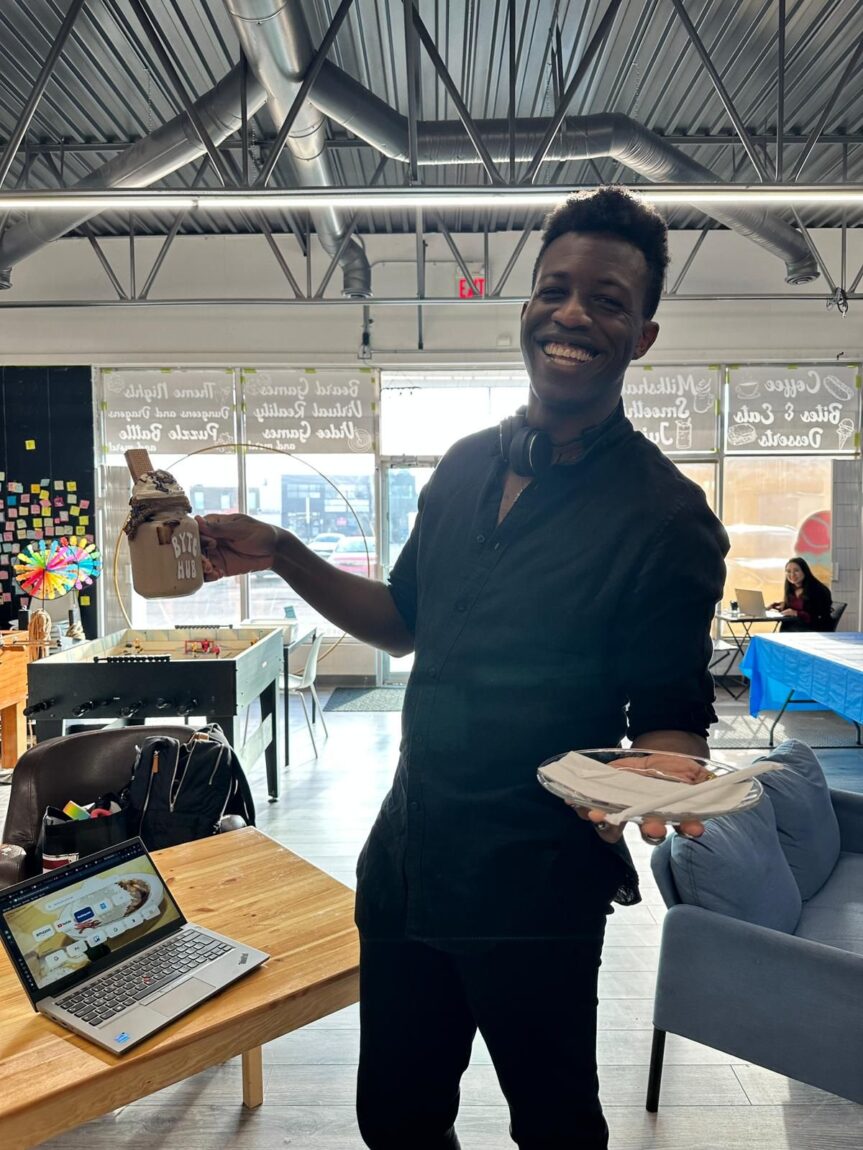
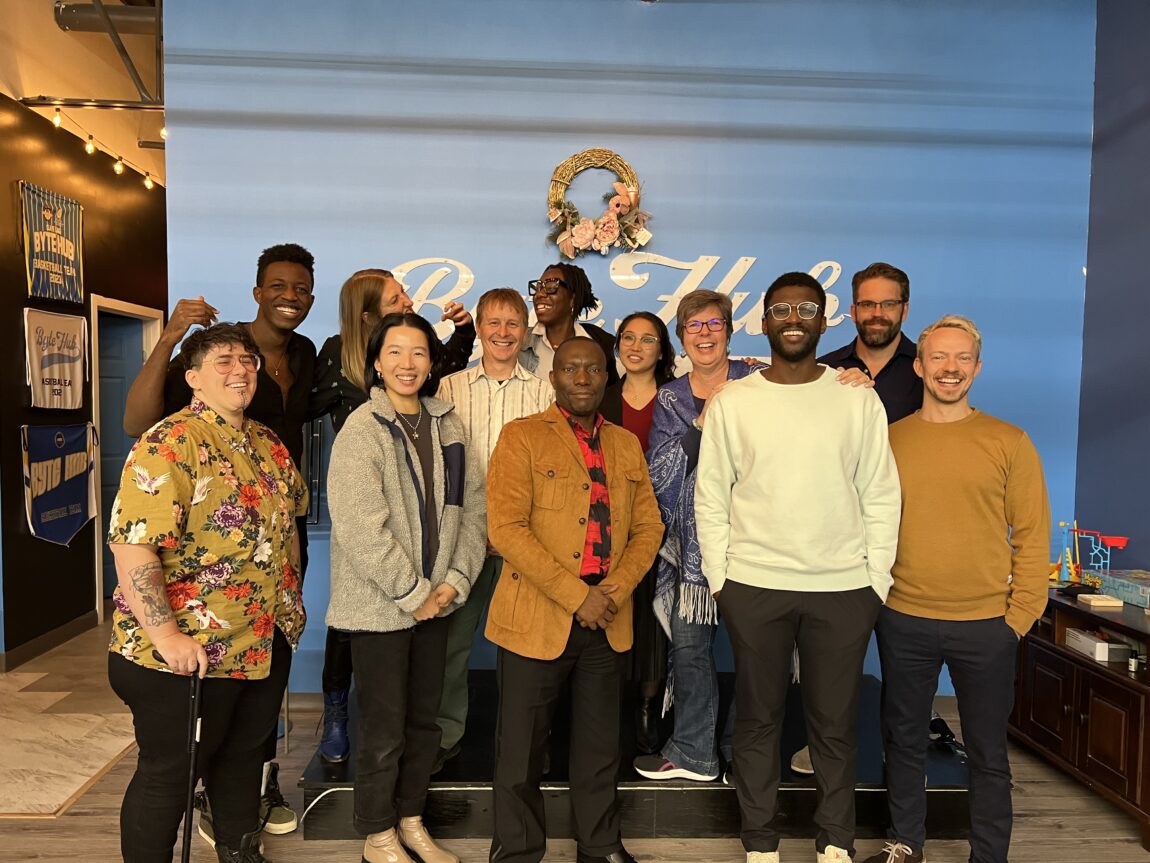

Throughout the project, the CWD Team facilitated partnerships between various community-based organizations, public agencies, and small-to-medium sized enterprises. Although all stemming from different industries and sectors, these stakeholders convened regularly so as to empower compatible work placements, advocate for the needs of marginalized Canadians in the job market, and provide wrap-around support like upskilling/ reskilling training.
For me, a highlight of this project has been the opportunity to directly connect with businesses from each rural community. With that in mind, the CWD team has curated a list of locations that we encourage CCEDNet’s membership to visit and explore called the CWD Tourist Guide. The Guide is composed of various museums, local restaurants, shops registered in the CWD program, and more! Check out the list to review worthwhile small businesses that you can support as the summer season approaches!
Times change!
When CCEDNet was incorporated in 1999, the internet was still in its early days. Most social media platforms we use today didn’t exist. Pandemics and polarization were far away things. People of my age and older might remember wondering if Y2K would break all the computers.
Also in 1999, CED was all the rage. There were CED training institutes across Canada, the McConnell Foundation had committed what would become $10M to the CED Technical Assistance Program at Carleton University, academics were doing research and universities creating educational programs, the Conference Board of Canada had a working group, cities had CED networks, provinces had CED secretariats… the list goes on.
Those days have passed. But the need for CED has not. Inequality, poverty, the growing cost of housing and food, the climate crisis and environmental destruction persist or are worsening. Why?
It’s the economy.
What determines the jobs available, how much money you make (which is a key determinant of your health and wellbeing), what choices you have to spend money, or invest if you’re lucky to have enough to invest?
It’s the economy.
We still urgently need economic change.
It’s worth remembering that the emergence of CED was just the latest articulation of efforts towards economic justice that stretch back a very long time. The values and principles that are at the heart of CED – democratic, community care and control of the economy, concern for equity and inclusion, dignity and self-determination – are perennial, and have also found expression in the co-op movement, Indigenous practices, the Black solidarity economy, the social economy, the Antigonish movement, the labour movement, and many others.
So if we look at that long arc of strategies, what are the movements that have momentum now? There are lots. We asked members about them in our annual survey this year, and the ones that were most often used or elicited the most interest (besides CED) were Social Innovation and Social Finance, Community Wealth Building, the Social and Solidarity Economy (which was recently recommended by the OECD, UN and ILO), Well-Being Economies, Indigenomics and Doughnut Economics.
Just as CED was a strategic opportunity in 1999, in 2024 it remains our job to find the frames that resonate now and will allow us to continue shifting power and practices to the perennial values and life-affirming economic systems we need.
Because it’s still the economy.
But here’s something that will never go out of style: organizing for economic justice. The involvement of members like you and many others has made CCEDNet what it is today. Let’s continue to make it an even more powerful force for change.
“I am a prisoner of hope. We are more connected than ever before; we have more knowledge and there are solutions if we work together. We cannot abandon hope, and there is no hope if we do not act.”
Desmond Tutu
After 25 years of tenacity, leadership and solidarity CCEDNet remains a pillar in the Canadian landscape for community economic development. This phenomenal milestone is a testament to the brilliant vision of the founders, and stewards of the mission and vision. I extend my deep gratitude towards the remarkable CCEDNet staff, board and national membership for the privilege to serve alongside you all.
Community economic development and the centering of justice, access, inclusion, diversity, decolonization and equity (JAIDDE) is vital after a quarter of a century’s work. To advance the effectiveness of community economic development we are required to support organizations and individuals to strengthen their communities and create solutions to local needs. It is clear that the future of community economic development is anti-racist, feminist, anti-oppressive and honours mother earth.
Our collective work must be informed and shaped by the unique realities of life in Canada and the intersectional and interconnected worldviews, values systems, ways of knowing, and life-affirming practices that cultivate a healthy relationship with our planet. Essentially, we must promote the language and practice of liberation to serve the relevant, responsive and practical purposes of supporting Canadians in every sphere of struggle.
Our collective work in a coordinated manner must reject, refute and rebut extractive economic models, and colonial ownership frameworks throughout our nation. We must continue to strengthen community capacity and support communities of practice that are rooted in regenerative and sustainable values that are easily utilised and accessible. It is important that the impact of our work generates community interest, builds community investment and a shared commitment to the vision and need for a people-centred economy. Our processes are representative, participatory and inclusive and remain grounded in the best and healthiest traditions and can strengthen national and international movements.
Our call for community action remains the same: to collectively serve others, and establish a Canadian economy in which no one is left behind. As a Board, we strive to enhance outcomes for all Canadians. We facilitate this through honouring our Elders, the community stalwarts who’s shoulders we stand on, the young people advancing the generational struggles that align with our mission and vision, and our membership through consistent communication, and advocacy on behalf of all Canadians, and stewarding strong relationships with government to ensure we are collectively doing our part to transform and in some instances challenge systems to create better outcomes for Canadians on the margins of the economy.
I look forward to working with each of you over the next year and continuing to learn from the talented community economic development professionals that are the backbone of CCEDNet. And please remember, “things are not getting worse, they are getting uncovered. we must hold each other tight and continue to pull back the veil.” – Adrienne Maree Brown
The time to act is now, join us for another 25 years of community economic development and impact!
The Stronger Together Award celebrates individual and organizational members who have made exceptional contributions to Community Economic Development and who have provided outstanding leadership in support of communities across Canada building strong, thriving local economies that benefit everyone. It is our honour to highlight the resilience, impact, and achievements made by our member network.
We warmly invite CCEDNet members to nominate their peers. New and long-term members are welcome as nominees and nominators. The deadline to submit nominations is May 13, 2024 by 11:59 pm PST.
The Stronger Together Award recipients will be celebrated at the 25th Annual General Meeting on June 13, 2024.
The nominees must be CCEDNet members in good standing (member has an active membership) and demonstrate leadership in advancing Community Economic Development. The Stronger Together Awards Selection Committee will be interested in how the nominee’s achievements have impacted the field of Community Economic Development, inspired further action, and/or benefited communities served. Achievements, peer collaborations, outcomes, or innovations that demonstrate nominee leadership or commitment will be considered.
Check out past recipients of the Stronger Together Awards here
Nominations can be made by any individual or organizational member in good standing (member has an active membership) that is not on the Stronger Together Award Selection Committee. Former award recipients may not be nominated again; however, previous nominees may be.
The Stronger Together Award Selection Committee, composed of Board members, and CCEDNet staff, will review the nomination forms and select the award recipient(s).
The committee will evaluate and score the nominees based on the completed written content of the nomination form and an assessment of merit.
If you have any questions or need support in sending your nomination, please contact Adriana Zylinski at .
You’re invited to take part in CCEDNet’s Annual General Meeting (AGM!) Please save the following date.
June 13, 2024
10am Pacific, 11am Mountain, 12pm Central, 1pm Eastern, 2pm Atlantic, 2:30pm Newfoundland
Annual General Meeting: 1 hour in length
Stronger Together Awards: 30 minutes in length
CCEDNet’s AGMs are entirely virtual (via Zoom) and bilingual (with the assistance of simultaneous interpretation). Members are able to make motions, vote and comment in English or French from the comfort of their personal or work computers.
This is a fantastic opportunity for CCEDNet members to hear from our Board President, Treasurer and Executive Director, and get directly involved as we share important updates. Join us as we introduce Board Directors starting new terms, present CCEDNet’s annual report, celebrate our successes, and share the strategies to come.
We will also feature CCEDNet’s annual Stronger Together Awards highlighting the exceptional leadership and inspiring contributions made by CCEDNet members across the country!
For additional background information, you can consult CCEDNet’s by-laws.
Meeting documents will be posted here as they become available.
The call for resolutions has closed. A resolution was put forward to support the UN resolution that was adopted last year called “Promoting the social and solidarity economy for sustainable development”. Review the resolution here.
This year, there are four (4) vacancies to be filled. The call for nominations has closed. Check out the Nomination Results!
“One of the strengths of Brandon Neighbourhood Renewal Corporation (BNRC) is the employees who often go above and beyond the call of duty. We seem to be able to step into just about any role that the community wants us to step into. We are problem solvers.
We have three social enterprises, including BNRC Construction and Fresh Start Specialty Cleaning. We hire persons with barriers to employment. After COVID, we were not getting contracts and we’ve been experiencing deficits. So, I put out a call for help. I sent an email to CCEDNet saying I just needed some support and guidance.
Immediately CCEDNet staff organized a meeting with six other social enterprises. Not only did they come to the meeting with advice, but they also did background homework before the meeting!
I was able to land answers and specific contacts with Manitoba housing. Now I can have those conversations in terms of getting specific contracts in and around Brandon. Going into that meeting, I was optimistic. Coming out of that meeting I felt fulfilled.
That’s one of the big ways in which our organization has been supported by CCEDNet.”
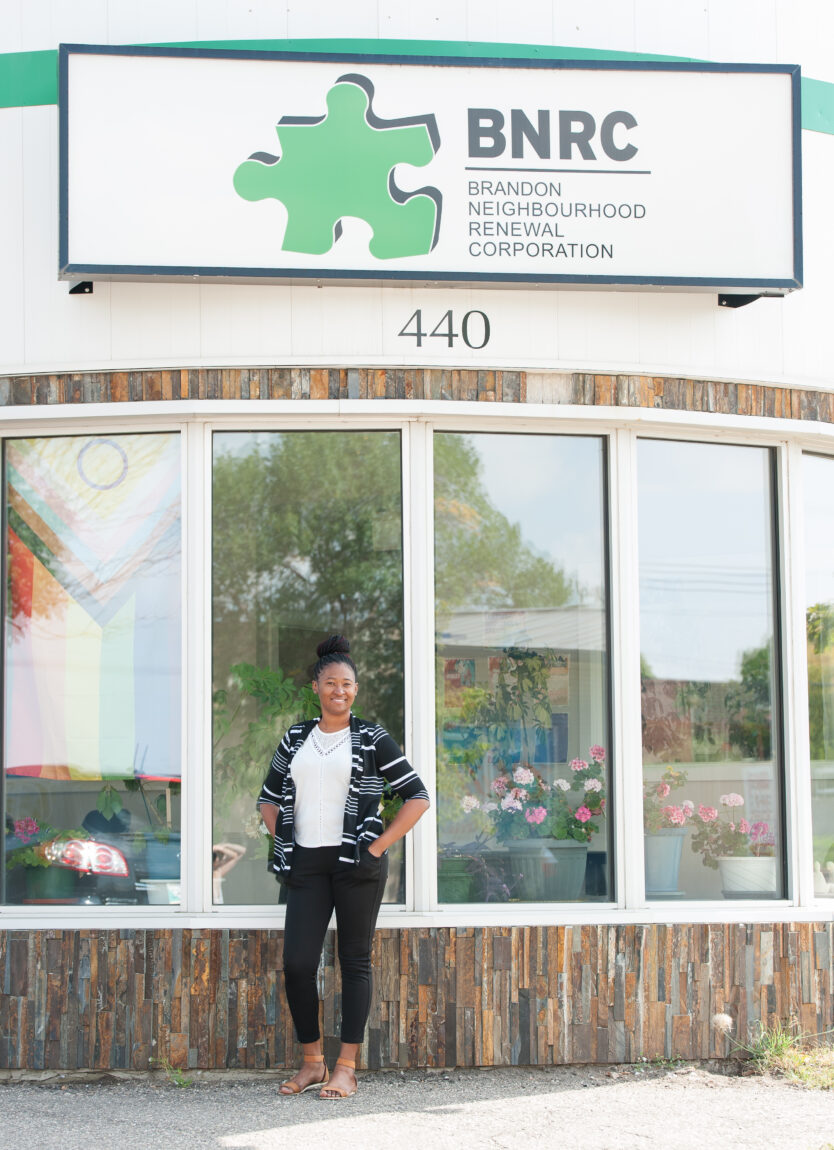
“CCEDNet is an umbrella organization that connects the web of nonprofits. We’re all interconnected, but with CCEDNet , we have those conversations that show you how we can achieve so much more together. We don’t have to work in silos.
I think CCEDNet helps to bridge those gaps so that we also don’t have to try to figure out stuff on our own when other organizations have those expertise.” – Rushana Newman, Executive Director, BNRC
Learn more about CCEDNet Manitoba’s support for CED organizations and community coalitions, and ask us about membership!
Thank you Cate Friesen from The Story Source for interviewing Rushana!
Break The Divide (BTD) is an international non-profit organization that connects youth worldwide in a conversation on climate change to break down divisions between communities. BTD’s patent “apathy to empathy to action” framework seeks to build ways in which young people can connect and learn from one another in an increasingly polarized world, allowing them to build empathy for realities that they have never faced, and empowering them to transform that empathy into concrete actions that advance the creation of harmonious and abundant futures.
Break The Divide is currently preparing to launch a new project engaging international students and immigrant youth in Downtown Toronto through an open online course on climate change and building resilience to take local climate action. The online course focuses on providing newcomers with the necessary knowledge and skills they need to understand and respond to challenges posed by climate change during their time in Canada.
The online course will explore the theme of alternative systems for an eco-friendly society and cover topics such as (1) cooperative and community forms of land ownership, (2) intersections of precarious employment, climate, and technology, and (3) democratic and cooperative financial systems, etc.
Through our established dialogue framework that encourages young people to share and build an understanding of diverse knowledge perspectives and foster empathy for one another, the program will nurture a sense of belonging in Canada, build a sense of community through sharing space with youth who hold similar lived experiences, as well as empower participants to address climate-related issues collaboratively. Our staff team will also use in-person meetings to facilitate “climate cafés” – a space for exploration of thoughts, feelings and experiences on climate change where participants can safely share emotional responses and reactions related to the climate and environmental emergency.
You can learn more information about the program by visiting the BTD website: https://breakthedivide.net/our-programs/climate-skills-community-building-fellowship/
As we are currently in the process of recruiting participants for the program, we ask that you kindly share information about the program with your network & refer us to anyone who suits the criteria and might be interested.
To register for the program, you have to be a new immigrant or international student in Canada, between the ages of 18 and 30. You can apply to take part in the program by filling out this Google Form (https://forms.gle/YQSyYoKnkEnBPagu8).
If you have any questions about the program, you can contact Aria Kani (Program Manager) at . You can also schedule a Zoom meeting with Aria to further discuss what the program entails here.
CCEDNet turns 25 this year! And because generations are typically defined in 25-year periods, we are reflecting on the concept of generational movement. How does the wisdom of previous generation shape not only the present, but also the way we move into the next?
This question is especially alive during Black History Month. Community economic development (CED) in Canada and around the world has always been shaped by Black people. From historical credit associations and mutual aid societies to the contemporary social solidarity economy and beyond, Black-led CED is not only resistance to economic oppression — it is a pathway toward collective liberation.
We wanted to think more about all of this through the lens of generational movement, and so we asked our networks to share their insights into the past, present, and future generation of Black-led CED.

Ryan Knight, Executive Director of the Afro Caribbean Business Network Foundation Canada; CCEDNet Board member:
The Black community has unsuccessfully attempted to fund its way to Black Empowerment (consciously or subconsciously) for the past 60 years, [and has tried] to combat anti-Black racism without institutionalizing solutions at the highest level of corporate engagement. More importantly, the lowlevel community organization’s approach is a definitive setback to creativity and innovation, creating further setbacks.
This realization has come from our research looking at past funding and strategies in our commissioned work The Black Empowerment Manifesto written by Errol Gibbs. Excerpt is below…
…“symptomatic statistics” drive “symptomatic-oriented responses” instead of changes that address “root causes.” Root causes are generally less apparent than the effects. Case-in-point: The consequences of violence are visible and alarming to society, yet the deep and underlying causes that confront society every day, in homes, workplaces, communities, corporations, and deep within the human spirit often evade keen observation and analysis. Root causes are less understood, less emphasized, and are less “statistically measurable” and analyzed to “fix” problems “before the fact,” but where do the real solutions lie? Could the solutions be as simple as equity, equality, empathy, fairness, and justice? It may be challenging to rise to such virtues in thought and practice because the human condition underpinning such solutions may not be the subject of quantitative and qualitative solution analysis?

Dr. Caroline Shenaz Hossein, Canada Research Chair for Africana Development & Feminist Political Economy; Associate Professor of Global Development at University of Toronto; founder of Diverse Solidarity Economies (DISE) Collective:
For students, for young people, for the generation coming up behind us, to definitely explore what’s not seen. What has been purposefully erased? What is it that [has been] silenced and [how can you] try to make visible those who are invisibilized? I think that’s the key.
That’s hard work; it takes time. It means you have to hang out and incubate with folks, bring a kind of humility to the work you’re doing to recognize that people together are figuring out solutions that are not driven [by] a ‘rational actor,’ but more [by the question of] ‘how do we co-operate and get together?” …
Right now the time is so urgent that we need to start uplifting the collective [in the forms of] democratically controlled institutions, co-operative, self-help, mutual aid, associational life, both in the informal and formal, that often are hidden or ignored, pushed to the background because there has been a deliberate intention to make commercial, corporate industry seem like that’s the only alternative.
And when we start to see through that, then it’s our responsibility to start emphasizing what co-operative membership institutions look like – take inventory of them, document them, promote them in every way we can.
You don’t have to be a scholar or academic to do this work. If you are working in the nonprofit sector, if you are a donor, if you are a policy maker, the time is now for you to make space, create those budget lines, new programming, that starts to think about collective membership-type of institutions that can be vested in real transformation.
Because when we abide by donor requirements that want to specify individual ways of working…then we lose sight about what transformation looks like for more of us. That’s where we’re at – membership institutions that are locally grounded, situated in your own backyard is where we start. Make sure those institutions are democratic and collective and really do value principles such as reciprocity and voice from the community.
Note: Dr. Hossein shared these insights in a fantastic interview with Serena Bahadur on the Diverse Economy Conversations for Youth Podcast. Quote shared here with permission.

Beatrice Anane-Bediakoh (she/her), CCEDNet Program and Engagement Manager:
This question is interesting. When considering the CED sector and Black liberation, the emphasis should shift towards an ideological transformation rather than solely focusing on decentering whiteness.
Imagine a paradigm shift where racial logics and harmful predilections of antiblackness are inverted, where blackness is conceptualized and understood in totality. What if every human question and possibility centred on Black life? The world’s lack of imagination for Black being is evidenced in its brutal enactment against such being. The fundamental issue is that there is no outright assumption of Black humanity in the world –this is further evidenced in the resounding call, Black Lives Matter, where Black life incessantly needs to be legitimized and argued for over and over again. So, when asked how we decentre whiteness from the CED sector—what is needed instead is an assumption of being. A world-making that thwarts our current ways of reading Black life. It requires a framework that restores a broader picture of Black life. Once we get there—and only then, can begin having meaningful conversations about liberation.
Ryan Knight:
Listening and supporting initiatives that achieve holistic, permanent, macro-level, job creation, wealth creation, digital and physical infrastructure to engender real and inclusive “Black empowerment” over the next 50 years.

Gina Malaba (she/her), Program Coordinator, Community Action for Workforce Development Program:
Beatrice Anane-Bediakoh:
Ryan Knight:
Beatrice Anane-Bediakoh:
I’d like to highlight Black-led CED initiatives that have participated in CreateAction including:
Gina Malaba:
I recently co-founded the Black Students Association Alumni Network (BSAAN) which is an alumni organization dedicated to supporting the professional development of Black postgraduates from the University of Alberta. Through coaching workshops, career panels, and postgraduate spotlights, BSAAN leads proactive efforts to connect Black postgraduates to a centralized realm of community resources and a global hub of potential employers. These activities are created with the goal of increasing networking, addressing anti-Black racism and bringing awareness to the lack of resources afforded to Black youths in sectors of employment and social services.
By connecting professionals to postgraduates, BSAAN creates a platform whereby previous alumni can contribute their time and resources to younger generations determined to succeed in continuously changing industries.
Interested in volunteering? Sign up to our Mailing List!